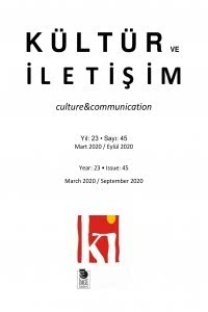Liberal Demokraside Azınlık Hakları: SBS Radyosu Üzerine Bir Örnek Olay Çalışması
Appudurai'nin tanımladığı biçimiyle küresel kültürel akış, küresel ve yerel, bireysel ve evrensel gibi geleneksel karşıtlıkların sınırlarını zorlamaktadır. Bu gelişmenin merkezinde kültürel tekbiçimcilik ve kültürel çeşitlilik arasındaki gerilim yer almaktadır. Bu çalışmada ilk olarak Appudurai'nin yeni küresel düzene ilişkin açıklamaları ele alınacak ve kültürel etkileşime ilişkin önerdiği beş boyutlu model tartışılacaktır. Daha sonra Charles Taylor ve Jürgen Habermas'ın farklı kültürel kimliklerin çoğulcu toplumlarda tanınmasına ilişkin yaklaşımlarına yer verilecektir. Avusturalya gibi çok kültürlü toplumların siyasal sistemlerinin, özellikle farklı etnik grupların tanınmaya yönelik taleplerini nasıl karşılayacağı bu tartışmalar açısından önemli bir sorun oluşturmaktadır. Avusturalya'da etnik farklılıkların temsiline yönelik bir girişim olarak ortaya çıkan SBS Radyosunun uygulamaları değerlendirilecektir. SBS kuruluşundaki amaçların pek çoğu gerçekleştirilememiştir.
Anahtar Kelimeler:
Arjun Appadurai, yeni küresel düzen, beş boyutlu model, Charles Taylor, Jürgen Habermas, SBS Radyosu, Avusturalya
Minority Rights in a Liberal Democracy: A Case Study on SBS Radio
Global cultural flows, in the sense that Appudurai describes them are forcing the boundaries of traditional dichotomies, such as local vs. global, individual vs. universal, or public vs. private. At the centre of such development lies the tension between cultural homogenisation and cultural heterogenisation. This paper will first outline Appudurai's interpretation of the new global order in terms of his elementary framework which distinguishes five dimensions of global cultural flow; namely, ethnoscapes, mediascapes, technoscapes, finanscapes and ideoscapes. It will then evaluate a discussion between Charles Taylor and Jürgen Habermas on the recognition of diverse cultural identities in pluralistic societies and how the political system of a multicultural society, such as Australia, can tackle the specific demands for recognition; often based on ethnicity by different cultural groups. This evaluation will then be applied to the establishment of SBS Radio, arguing that SBS Radio represents only a minimalist approach to the representation of ethnic communities in Australia
Keywords:
Arjun Appudurai, five dimensions of global cultural flow, Charles Taylor, Jürgen Habermas, Australia, SBS Radio, the new global order,
___
- Appudurai, A. (1993). "Disjuncture and Difference in the Global Cultural Economy." In The Phantom Public Sphere. Robbins, B. (ed.). London: University of Minnesota Press.
- Fraser, D. (1982). "Structure and Organisation of the Special Broadcasting Service." The Report of Education and Welfare Group of the Department of the Parliamentary Library. Canberra: Parliament of Australia.
- Grassby, A. (1975). "Why Ethnic Broadcasting?" in Community Relations Paper. Canberra: Office of the Commissioner for Community Relations.
- Habermas, J. (1994). "Struggles for Recognition in the Democratic Constitutional State." In Multiculturalism: Examining the Politics of Recognition. Gutmann, A. (ed.). New Jersey: Princeton University Press.
- Jakubowicz, A. (1987). Days of Our Lives. Media Information Australia 45.
- Patterson, R. (1988). The Special Broadcasting Service and the Construction of Ethnic Radio and Multicultural TV. PhD Thesis. Griffith University.
- ISSN: 1301-7241
- Yayın Aralığı: Yılda 2 Sayı
- Başlangıç: 1998
- Yayıncı: İmge Kitabevi Yayınları
Sayıdaki Diğer Makaleler
Fransız Düşünürlerden Ötekilik Yaklaşımları
İstanbul'da Hatırlamak ve Unutmak: Birey, Bellek ve Aidiyet
Liberal Demokraside Azınlık Hakları: SBS Radyosu Üzerine Bir Örnek Olay Çalışması
Popüler Kültür Çalışmaları: Kuram ve Metotlar
Günaydın G-8: Sayısal Eşitsizliği Kapatma Girişimi ve Türkiye Deneyimi
Kentsel Kültürel Kimlikler ve Küreselleşme: Eleştirel Bir Bakış
